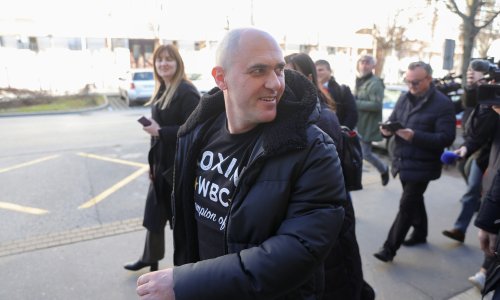Chief State Prosecutor Mladen Bajic said on Wednesday that his office, had it been given earlier the instruments it now had under the new Criminal Procedure Act, could have clamped down earlier on organised crime and corruption.
Introducing in parliament a report on the work of prosecutors' offices in 2010, Bajic said the biggest changes in the fight against corruption and organised crime happened after the adoption of the new Criminal Procedure Act in mid 2009, which authorised prosecutors to launch investigations and collect evidence.
"That is the answer to questions about the significant progress made since 2009, notably in the fight against the gravest types of crime and corruption. An analysis of files at the Office of the Chief State Prosecutor (DORH) shows that we had tried to do it earlier, but without success because we did not have the necessary instruments."
According to the report, in 2010 the anti-corruption office USKOK filed criminal reports in 1,101 cases, of which 152 referred to organised crime and 925 to corruption. The number of criminal reports in 2010 dropped by 1.5 percent, but the number and gravity of corruption cases was on the rise, with abuse of office and powers by state officials being the most frequent type of offence.
Organised crime courts in 2010 handed down 305 verdicts, of which 286 were sentences, 15 were acquittals and five cases were dropped. USKOK's success rate in those cases was 93.7 percent of sentences, of which 90 percent were prison sentences. In corruption cases, courts handed down 156 verdicts, of which 141 were sentences and 15 were acquittals.
Bajic said that in corruption cases, security measures were imposed on 65 people, while in the case of 22 people, the court confiscated their illegally acquired property. The assets frozen by courts amounted to some 51 million kuna, and courts issued orders for the confiscation of 32.7 million kuna and 118,000 euros, as well as of real estate.
Bajic said that in 2010, 3.1 percent of all crimes were crimes against human life and health, roughly the same rate as in previous years. There were 25 aggravated murders and 32 murders, 11 attempted aggravated murders and 127 attempted murders.
Crimes related to drug abuse accounted for the largest portion of all crimes, but most reports were filed for the least dangerous type of that crime, namely possession of light drugs.
Bajic said that prosecutors mostly launched misdemeanor charges in such cases, especially in the case of minors or young adolescents, but that this did not mean that they were de-criminalising light drugs.



































